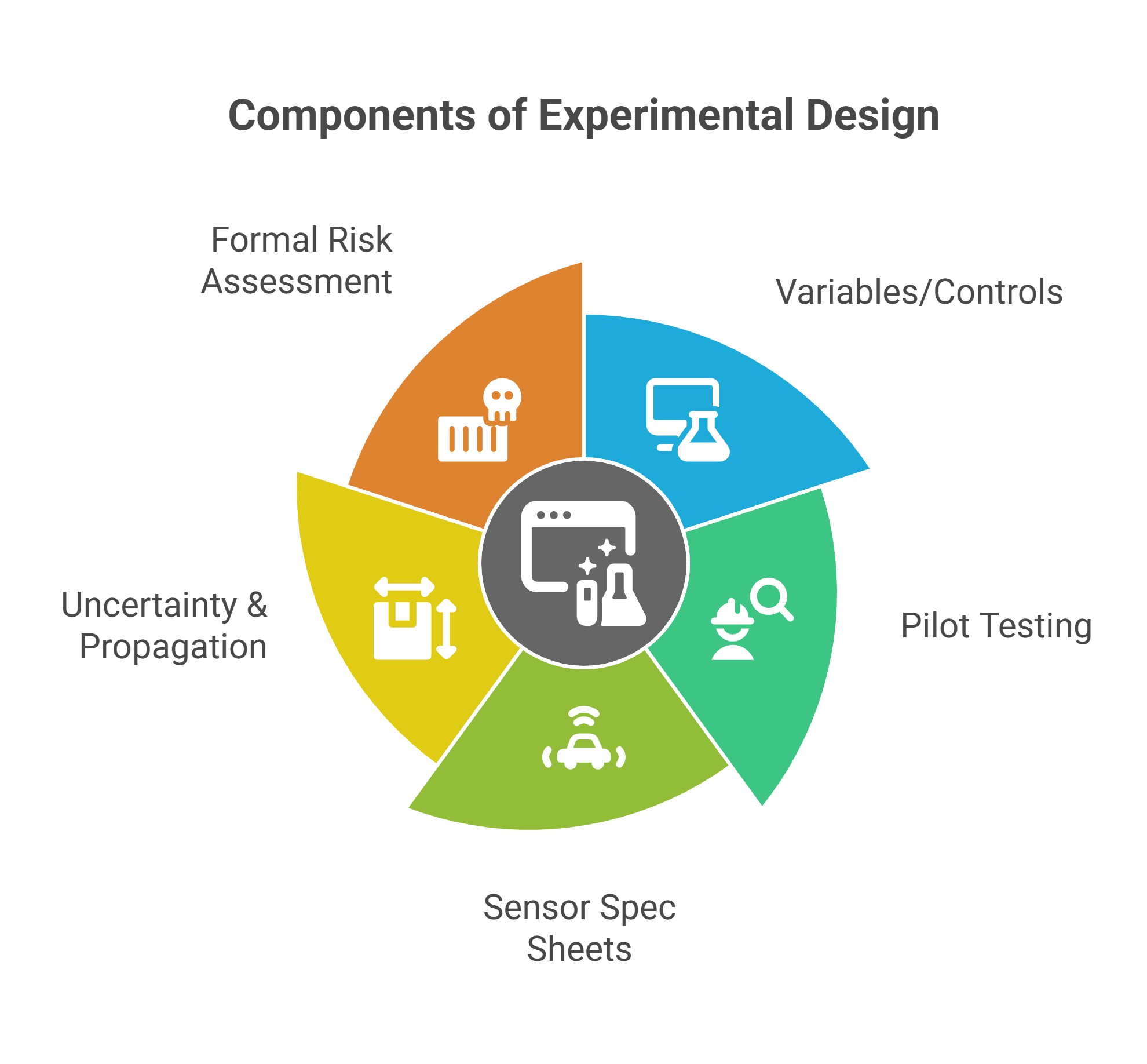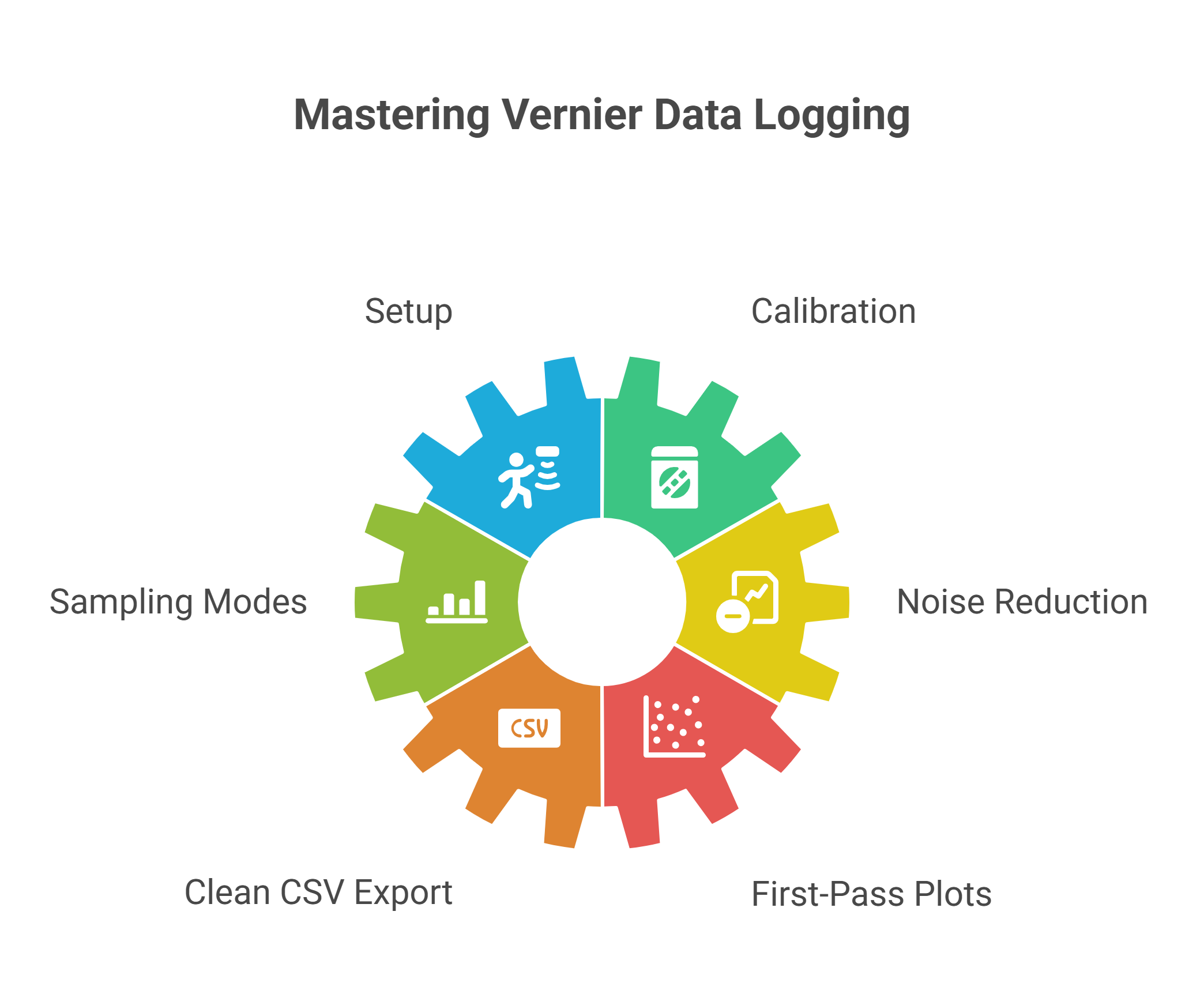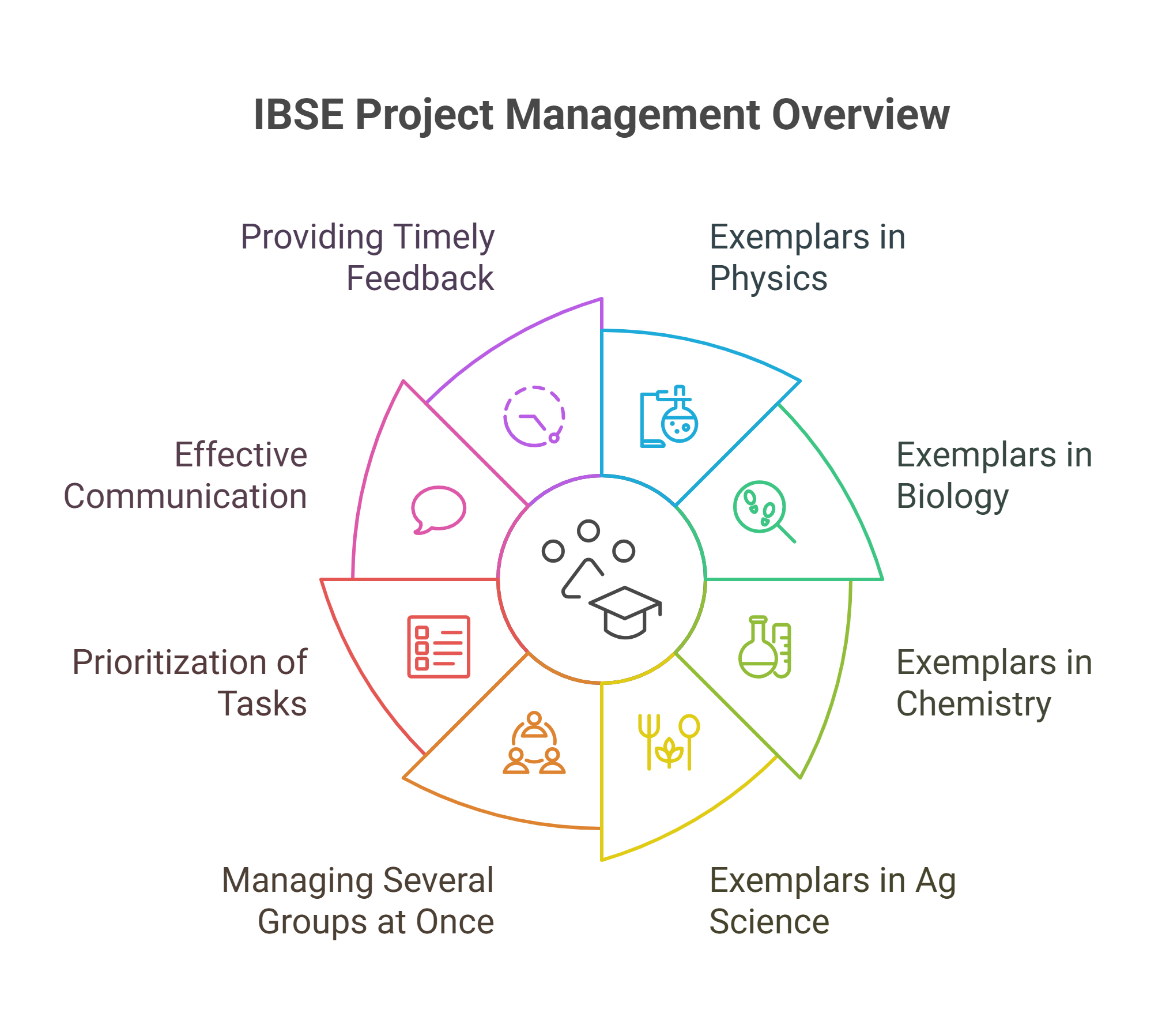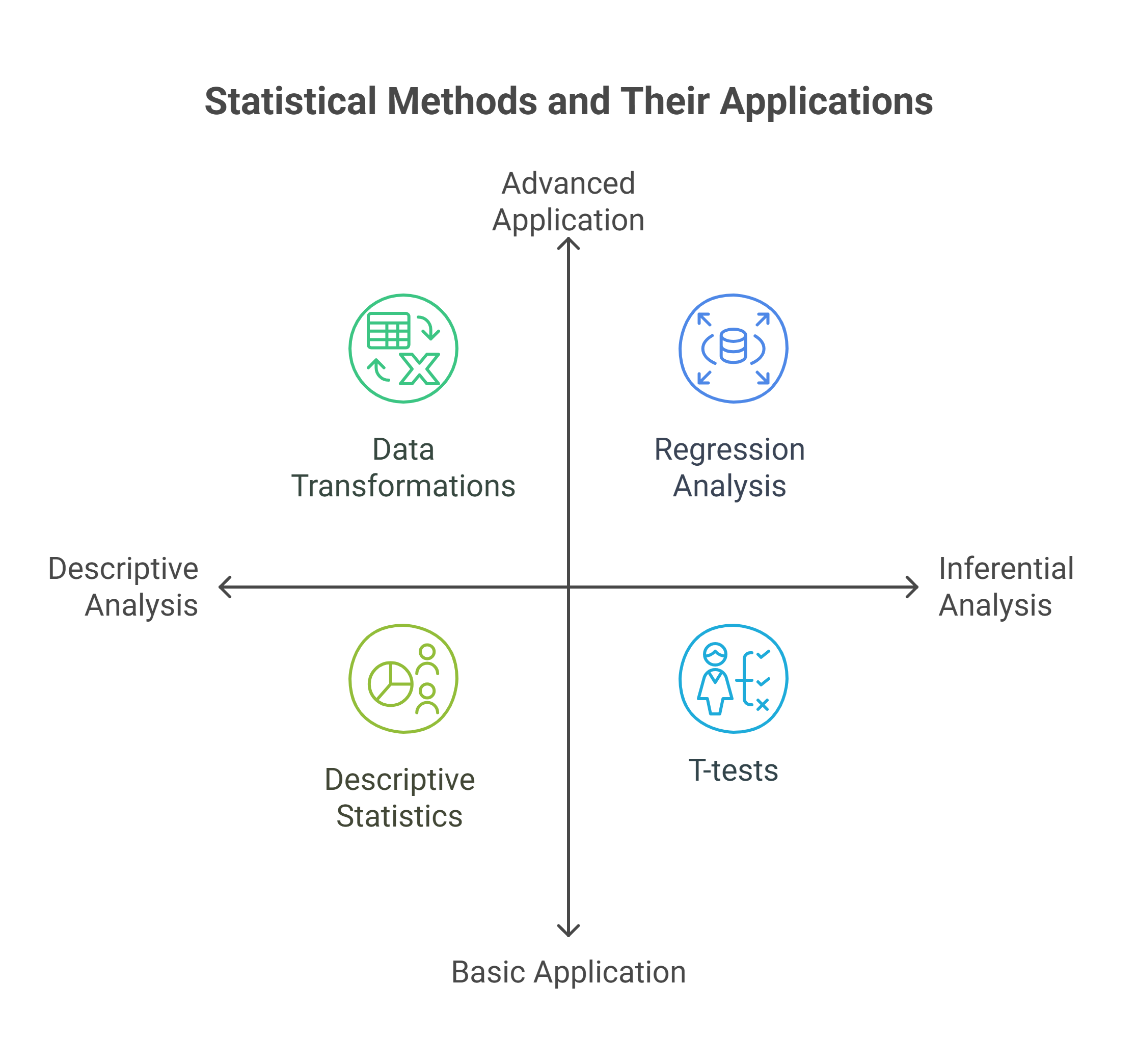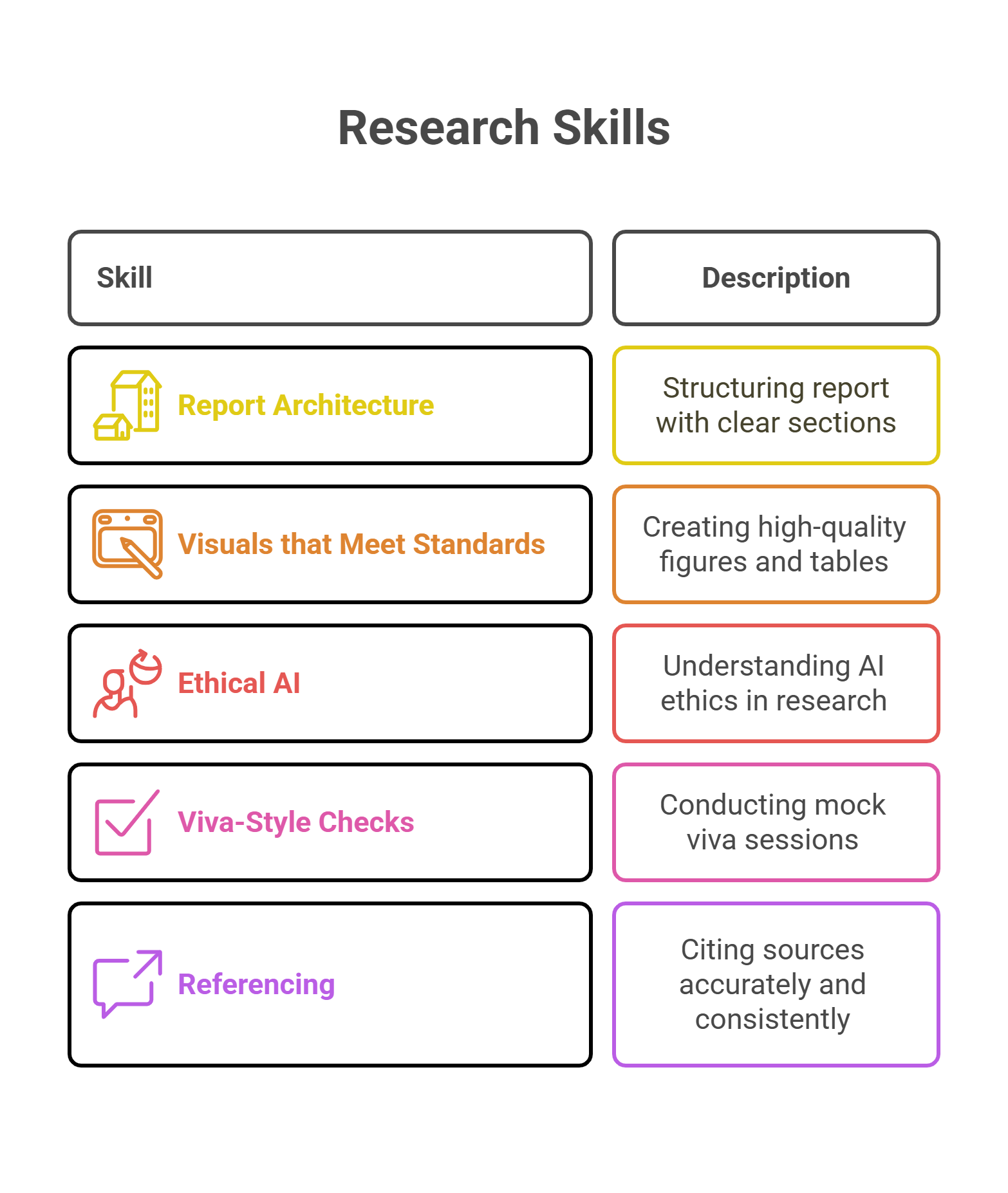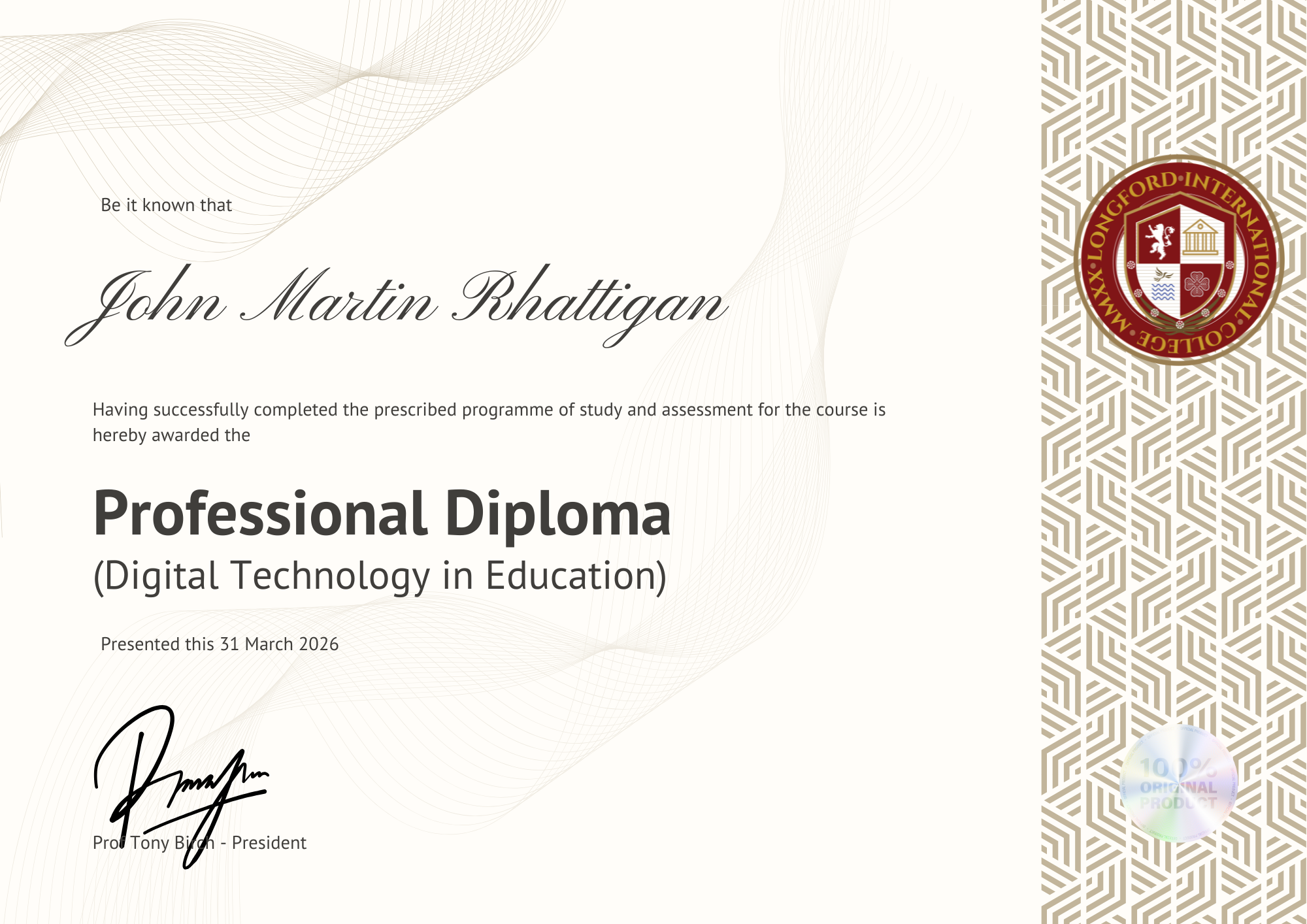LC Science Investigations
A practical, cross-subject Professional Diploma to design valid experiments, capture robust data (Vernier or equivalent), and guide authentic student investigations.
€595 per teacher
(Discount available for more than 2 teachers from same school)
Professional Diploma · LC Science Investigations (Physics, Biology, Chemistry, Agricultural Science)
-
✺
Why this diploma?
One framework for four sciences (Physics, Biology, Chemistry, Ag Science).
Vernier made easy: sensor choice, calibration, sampling, exporting, quick analysis.
Assessment-ready: logs, rubrics, checklists, risk forms, and report scaffolds.
School impact: build your department rollout plan in Week 8.
-
✺
What you’ll be able to do
Turn themes/briefs into doable research questions.
Design safe, valid lab or field experiments with clear variables and controls.
Collect high‑quality primary data (Vernier or alternatives) and analyse it.
Coach students to produce authentic investigative logs and justified conclusions.
Align to LC assessment and authenticate student
-
✺
Fast facts
Format: Online + optional blended lab
Duration: 8 weeks · ~4–6 hrs/week
Cohort start: Jan 2026
Credit: Counts as one full module toward our MSc STEM (optional)
For: Teachers of Physics, Biology, Chemistry, Ag Science
-
✺
What you produce (Assessment)
Micro-portfolio (60%): investigation log template + exemplar entries; experiment planner + risk assessment; a small data set (Vernier or equivalent) with graphs/analysis; department rubric + authentication checklist.
School Implementation Plan (40%): timeline, kit plan, student guidance, moderation/standardisation; one cross-subject investigation outline (e.g., local water/soil quality) with variants for each subject
-
✺
Vernier Equipment Only
Core sensors: temperature, pH, colorimeter, dissolved oxygen/CO₂, conductivity, turbidity, light, and motion.
Workflows: calibration → baseline → sampling rate → export to CSV → quick plots & basic statistics.
Alternatives supported: most software packages are the same, and the procedures also are similar, so it is possible to apply our resource materials to other brands, such as PASCO and DataHarvest. Please note that we do not provide technical assistance to any brand other than Vernier.
-
✺
School Impact
Plug-and-play toolkit for your department.
Common language for research, experimentation, and analysis.
Consistent teacher authentication and moderation.
8 Weeks to Mastery of the Data Collection for the new LC Syllabus!
Level up your science teaching with an 8-week, hands-on IBSE program that takes you from inquiry launch to a fully implemented, practice-based classroom project. Each Tuesday evening (6:00–7:30 PM) you’ll join a live, 90-minute session that blends practical design, safe instrumentation and risk, Vernier data-logging know-how, statistics for evidence, and clear reporting, referencing, and authentication. You’ll also get rich resource packs to use immediately—and, with sufficient interest, an optional in-person, live practical day in Longford. Join us and turn inquiry into impact.
What’s inside in Diploma
Week 1 - End-to-End + Inquiry Launch
Purpose: Big picture of the LC investigation; set up inquiry-based science learning (IBSE) and authenticity.
You’ll learn:
IBSE cycle (engage–explore–explain–elaborate–evaluate) and how to keep student voice high while maintaining authenticity.
Brainstorming to research focus: 5 Whys, SCAMPER, question storming, impact–feasibility matrix.
Writing aims, objectives, and research questions (RQs) using FINER/SMART checklists (define variables, population, context).
Robust research foundations: reliability vs validity (construct/internal/external), generalisability, bias and confounders.
Hands-on: Build your Investigation Logbook Template (prompts for decisions, evidence, iterations, ethics, teacher authentication).
Deliverable: Draft aims/objectives/RQs for one cross-subject theme (e.g., local water quality or energy efficiency).
Week 2 - Research Methods & Project Orchestration
Purpose: Turn the theme into a feasible plan and manage multiple student projects.
You’ll learn:
Literature & source quality (triangulating textbooks, specs, reputable websites, vendor datasheets, journals).
Sampling strategies (time/space, repeated measures, controls) for original data collection.
Managing many projects: team roles, Kanban/Trello boards, booking labs/sensors, resource rota, ethics/GDPR notes.
Drafting a Project Charter: scope, constraints, risks, milestones, and success criteria.
Hands-on: Annotated bibliography, feasibility grid, Gantt (light) for an 8–10 week student timeline.
Deliverable: Project Charter + evidence map linking sources to planned methods.
Week 3 - Design, Instruments & Risk
Purpose: Design trustworthy experiments and choose instruments wisely.
You’ll learn:
Variables, controls, counterbalancing/blocking; pilot testing; replication levels.
Reading instrument specifications (for Vernier or equivalent): range, resolution, accuracy vs precision, response time, linearity, drift, operating conditions, sampling rate/bandwidth; how each affects measurement uncertainty and data quality.
Uncertainty & propagation basics; choosing appropriate sampling rate (incl. Nyquist considerations for Physics signals).
Formal risk assessment (hazard, likelihood, severity), field vs lab SOPs.
Hands-on: Compare two sensors’ spec sheets and decide which yields sufficient accuracy for a target effect size; run a mini-pilot.
Deliverable: Experimental Plan + Risk Assessment + Instrument Justification (with spec-based rationale).
Week 4 - Data Logging Mastery (Vernier only)
Purpose: Become fluent in practical datalogging and data integrity.
You’ll learn:
Setup, calibration, zeroing/baselining, drift checks; configuring sampling modes (time-based, event-based).
Reducing noise: warm-up time, shielding/cabling, smoothing vs preserving signals; file naming/versioning for data integrity.
Collecting original data: lab runs and a short field mini-study; capturing covariates (temp, light, pH, etc.).
Quick visuals and rates of change (slopes) from time series to test hypotheses’ direction.
Tools: Vernier Graphical Analysis, plus pathways for Google Sheets/Excel; optional Jamovi/JASP install.
Deliverable: A clean CSV (with metadata), calibration record, and a first-pass plot with annotated observations.
Week 6 - Statistics & Evidence
Purpose: Analyse data properly and match claims to evidence.
You’ll learn (step-by-step, tool-guided):
Descriptives: mean, SD, SEM; error bars that actually mean something.
Correlation (r) and simple regression (R²), interpreting slope as rate of change; residuals and RMSE for model quality.
Choosing models: linear vs log/exponential; when to transform data.
Comparing groups: CI reasoning; t-tests/one-way ANOVA (intro) and effect size (Cohen’s d).
Reporting uncertainty: precision vs accuracy, propagating errors, repeatability; what your instrument specs imply about detectable differences.
Generalisability & limitations: threats to validity, sample size, context boundaries; making cautious, defensible claims.
Tools: Google Sheets/Excel (built-ins), Jamovi/JASP (point-and-click), Vernier GA export → analysis workflow.
Deliverable: Analysis notebook: cleaned dataset, chosen model, r/R²/RMSE, figure with caption, and a short “claim + evidence + uncertainty” paragraph.
Week 8 - Practice-Based Classroom Project (Dept. of Education–compliant)
Purpose: Implement your investigation workflow in a real class, evidencing alignment with Department of Education/SEC requirements and school policies.
You’ll learn:
Compliance setup: principal sign-off, risk assessment/SOPs, lab/field permissions, parental consent (if off-site), GDPR/data retention (anonymised student data), accessibility and reasonable adjustments.
Plan–Do–Study–Act (PDSA): map aims, objectives, and RQs to the LC specification; schedule within the ~20-hour investigation envelope; sensor rota, calibration logs, and equipment stewardship.
Delivery in situ: run 2–3 IBSE lessons that collect original student data (Vernier or equivalent); ensure authentication (check-ins, version history, brief viva).
Assessment & moderation: apply the department rubric; quick moderation meeting with another teacher; document decisions and any adjustments.
Evidence & reflection: evaluate data quality using correlation, R², RMSE, rates of change, and uncertainty statements; interpret instrument specs (range, resolution, accuracy/precision, response time, drift) and how they affected results; discuss generalisability, limitations, and next steps.
Deliverables (Capstone Evidence Pack):
Approved Project Plan (lesson outlines, timeline, risk, permissions, GDPR note) and Instrument Specification Rationale.
Calibration records, anonymised raw CSV(s), graphs with fitted models and diagnostics (residuals/RMSE), and short “claim–evidence–uncertainty” write-ups.
Authentication log (teacher check-ins, viva notes), plus a brief moderation summary co-signed by a colleague.
A 1–2 page Reflective Evaluation: what worked, what to improve, and how you’ll scale to multiple projects next term.
Week 5 - Subject Pathways & Multi-Project Management
Purpose: Concrete exemplars in each subject while running several groups at once.
***The following are only examples; actual projects will match the DoE requirements when available in January 2026.***
Physics: Motion (constant acceleration, motion sensor), energy transfer (temp probes), waves/light (light sensor). Focus on sampling rate, response time, and R² of linear fits.
Biology: Enzyme kinetics, respiration/photosynthesis (DO/CO₂), osmosis/ecology transects. Focus on biological variability, replicates, and generalisability to populations.
Chemistry: Rates (colorimeter/conductivity), titration curves (pH), equilibrium proxies. Focus on precision, calibration curves, RMSE of model fits.
Ag Science: Soil/water quality (pH, EC, turbidity), plant growth vs environment. Focus on site selection, spatial sampling, confounders (rainfall, shade).
Management: Rotas for sensors, “clinic blocks” for teacher check-ins, shared data folders with naming conventions, and quick QA checks.
Deliverable: One fully specified
Exemplar Pack per subject (brief, variables, instrument settings, data table shells, expected graph types).
Week 7 - Reporting, Referencing & Authentication
Purpose: Produce publishable-quality student reports and keep them authentic.
You’ll learn:
Report architecture: Abstract → Intro (aims/RQs) → Methods (with instrument specs & calibration) → Results (tables/figures) → Discussion (limitations, generalisability) → References → Appendix (log extracts).
Visuals that meet standards: axis labels/units, significant figures, readable error bars, honest residual plots.
Referencing & ethical AI use (what help is allowed; how to cite tools or AI assistance).
Teacher authentication: check-ins, viva-style mini-orals, version history, comparing raw files to reports.
Deliverable: Marking rubric + report checklist + a polished 2-page sample Results & Discussion section based on your Week 6 analysis.
What you get
On successful completion, participants are awarded the Professional Diploma: LC Science Investigations carrying 10 ECTS (European Credit Transfer and Accumulation System) credit from Rushford Business School, Geneva. These credits may be applied as one full 10-ECTS module toward the MSc in STEM Education at Longford International College, subject to standard admissions and academic regulations (credit recognition/transfer and any grade thresholds in force at the time of application)
Attention Vernier Users.
If your school is a Vernier user, you’re eligible for an exclusive 40% discount voucher on this course. This Vernier grant is available only to the first 100 teachers who claim it and complete their enrolment before 9th December at 9.00am, so early registration is strongly recommended. Simply indicate that you are a Vernier school when signing up, and once verified, your discount will be applied—making it even easier to equip your science department with the tools and confidence needed for the new Leaving Certificate project work.
✺ Frequently asked questions ✺
-
Yes. The diploma maps the full investigation workflow to DoE/SEC expectations and will be updated as each subject’s briefs/specs are released. You’ll practice compliant planning (within the ~20-hour envelope), logs/authentication, data quality, reporting, and a classroom practice-based project that evidences alignment.
-
Absolutely. Week 5 provides subject pathways; weekly clinics include subject-specific breakout time and peer clusters; and your capstone lets you implement in your own subject, with exemplars and marking guidance tailored to that discipline.
-
Yes. On successful completion you’ll receive a Vernier equipment voucher, redeemable only against Vernier hardware/software with our approved suppliers. (Non-transferable, no cash value; value and redemption window confirmed at enrolment.)
-
The diploma runs for 8 weeks on our Moodle course site with one live session each week (interactive workshop + Q&A) and extensive self-paced resources: pre-recorded bite-size videos, step-by-step labs, datasets, templates, and reading packs. Optional blended elements (school-based practicals/clinics) help you apply everything directly in your classroom.
-
No. We provide demo datasets, remote workflows, and a free 30-day trial for any software used. You’ll still learn sensor choice, calibration, sampling rates, export and analysis; the voucher can then help you purchase Vernier gear when ready.
-
Teacher-friendly, no-coding tools: Google Sheets/Excel and Jamovi/JASP. You’ll cover descriptives and error bars, correlation (r), linear regression (R²), RMSE and residuals, rates of change (slopes), model choice/transformations, and intro comparisons (t-tests/ANOVA) with clear figure/report templates.
-
It’s 8 weeks, ~4–6 hrs/week, online with optional blended labs. Assessment is a Micro-Portfolio (templates, calibrated dataset, analysis) plus a Practice-Based Classroom Project (Dept. of Education–compliant). Graduates may count this as one full module toward the MSc in STEM Education (subject to College regulations).
-
No stress—every live session is recorded and added to Moodle for on-demand viewing. You can post questions in advance or afterwards in the forum, and we’ll address them in the next clinic or in writing so you never miss the learning
-
You’ll design and run an experiment/field investigation of your choice and submit a Department of Education–aligned evidence pack (plan, risk assessment, instrument specs/calibration, raw CSV data, graphs, justified conclusions, and short reflection). This capstone satisfies the new syllabus investigation requirements and demonstrates authentic, classroom-ready practice.
How to sign up
Ready to join? It’s quick:
Payment: card or invoice/PO accepted; department bundles available.
On approval, you’ll get your Moodle login, welcome pack, and pre-course checklist.
Eligibility: Post-primary teachers of Physics, Biology, Chemistry, or Agricultural Science (new or experienced).
Delivery: 8 weeks online (weekly live workshop) + optional blended/practical elements.
What you need: Laptop, stable internet; Vernier not required to start.
Don’t forget to claim your Vernier Europe 40% off voucher for all Vernier users!




